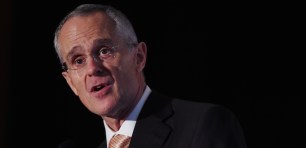
Just over five years ago, it was my first time helping build a bank. Fast forward to today and that cutting-edge technology now seems old.
The speed of progress in the tech sector has meant that technology that was initially only found in the realm of data scientists and software engineers is now within reach of the everyday developer.
So where can we expect the tech sector to go in the next decade?
Tech will become modular
The growing democratisation of technology tools will see developers hone their core IP and use off-the-shelf capabilities for the rest. Not so long ago, you would have built everything from scratch. Now that the foundational parts are available through software as a service (SaaS), developers can focus on the value proposition they bring to the product or service they’re building.
If, for example, you want to send a text message to notify someone when a certain food truck is in their area, the different components (the location data, the customer’s profile that saves their selection of favourite food trucks, the access management logins, the technology to send the text), don’t need to be built from scratch, they are ready to be assembled. It will be the modular fitting together of these components that will form the backbone of developers’ IP.
Remote working is here to stay
We’ve had 18 months of pandemic mode where lockdowns and distancing have been mandated by government, so any organisation that hasn’t sorted out its remote working practices and the infrastructure to support them is already behind. This could see employees leave the bigger cities for outer suburban and regional areas for more affordable lifestyles, and would give businesses the opportunity to hire from locations beyond where their office is located.
From an industry perspective, the employee value proposition that started with the remote working conversation will become more important. We’re already seeing talent shortages in the technology sector, so offering flexibility and better work/life balance will become standard.
Artificial intelligence will have a huge impact
In the next five years, use of artificial intelligence (AI) will tip from early adopter phase to more common use in the industry. We can already see this happening as AI and machine learning go from being specialised terms to entering the common lexicon. What this means for the industry is problem-solving that is quicker, cheaper and more personalised. Eventually we will get to the point where the predictive nature of AI will offer solutions to problems that have not yet emerged.
In the banking and finance industry where I specialise, this might look like a series of prompts that will help guide the consumer to more suitable products. For example, say you get a new job with a higher salary. That could trigger a note to suggest refinancing your mortgage, or contributing more to superannuation, or saving for a particular goal depending on what the institution might know about your behaviour, your lifestyle, and the outcomes you’re after regarding your finances. Open banking will help with this by providing data that will help consumers compare and switch in a more convenient manner.
Tech will be driven by purpose
I’m seeing a lot more tech companies embrace sustainability, both internally with their suppliers — for example, seeking out carbon-neutral tech providers — and externally by investing in ethical, eco-friendly technologies, funding charitable organisations or becoming B Corp certified. It’s a trend I expect will continue as the supply chain becomes more transparent and consumers become more aware of the impacts.
Canva CEO Melanie Perkins recently pledged 30% of the business to the Canva Foundation, which will contribute funds to alleviate climate change and wealth inequality. UK fintech Worldline uses data analytics to calculate consumers’ carbon footprints so they can know their own actual carbon impact to change their behaviours and offset the amount. Technology will become intertwined with sustainability, and I expect to see more careers emerging at that intersection.
Having the capability to deliver technology opens doors to all industries across the globe. On the flipside, the companies that will attract the talent will be focused on innovation, sustainable culture and tackling complex technology and social issues. The next decade will be an exciting time in the industry and I can’t wait to see it play out.
Handpicked for you

ACCC calls for more powers to regulate Google and “restore competition” to the adtech sector



COMMENTS
SmartCompany is committed to hosting lively discussions. Help us keep the conversation useful, interesting and welcoming. We aim to publish comments quickly in the interest of promoting robust conversation, but we’re a small team and we deploy filters to protect against legal risk. Occasionally your comment may be held up while it is being reviewed, but we’re working as fast as we can to keep the conversation rolling.
The SmartCompany comment section is members-only content. Please subscribe to leave a comment.
The SmartCompany comment section is members-only content. Please login to leave a comment.